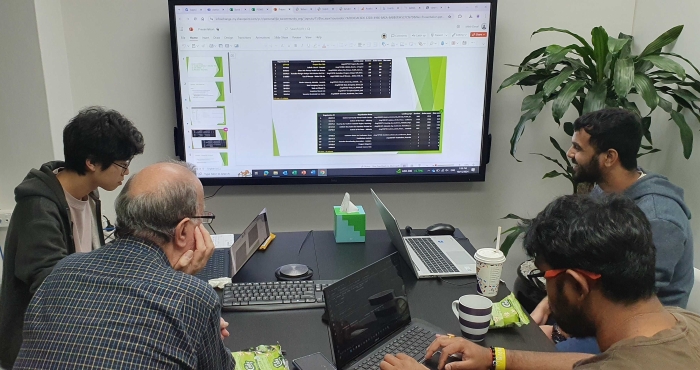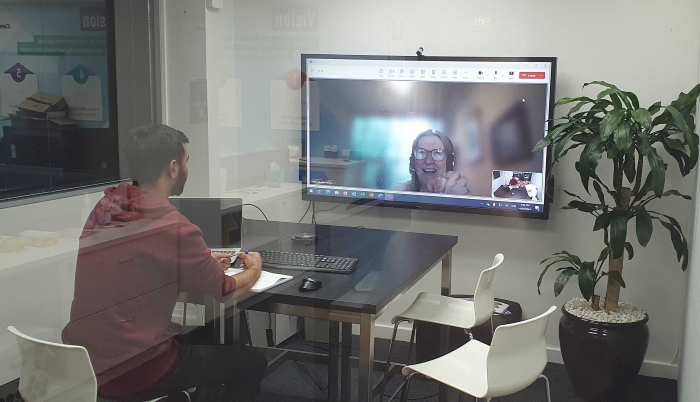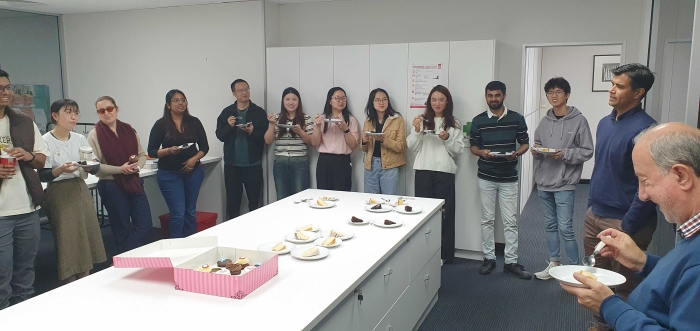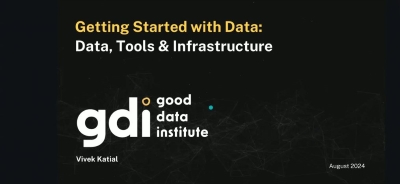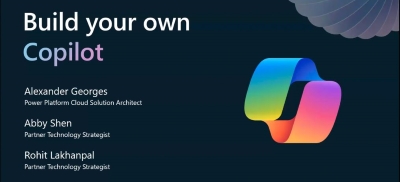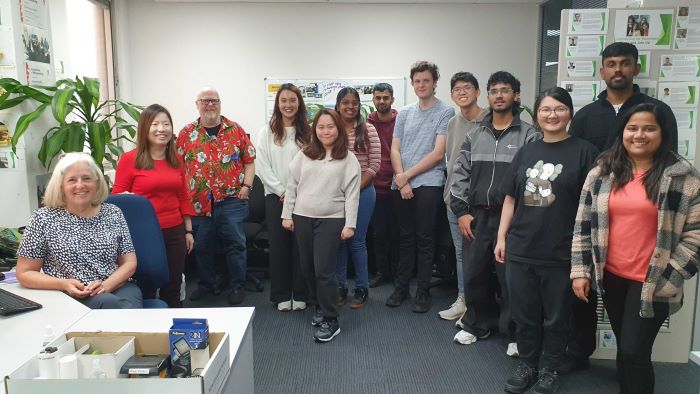Adelaide University Internship Experience - Mihir Desai

Welcome Mihir!
Mihir Desai joined our SAcommunity Data Analytics Team for his University of Adelaide SET (Sciences, Engineering and Technology) Internship for his Bachelor of Mathematical and Computer Science Semester 2, 2024: 13 August 2024 - 8 November 2024.
He is completing a 280 hour internship onsite with SAcommunity at the Connecting Up Office, Infoxchange for 3 days (22.5 hours) a week for ~14 weeks around his classes.
Total Hours 280 Joined 14 August 2024 Last Check-in 8 November 2024
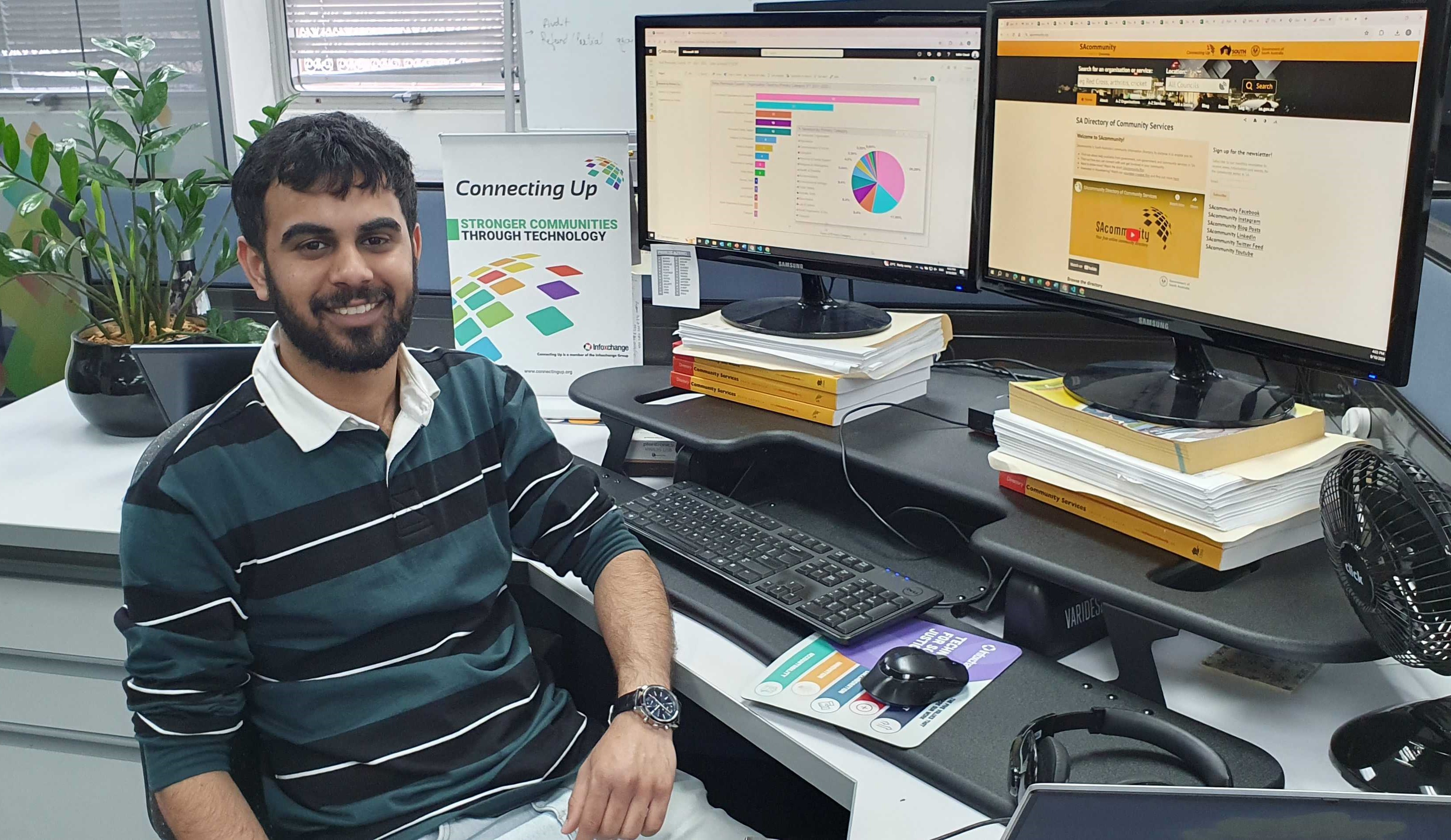
He interned at Connecting Up to apply his learnings in a practical and real-world project. Mihir also aims to further develop his professional skills to ensure he is well-prepared for the transition into a full-time role in the industry. At Connecting Up, he looked forward to networking with individuals from his field and learning from their experience.
In the future, Mihir aims to start of his professional journey as a full-time data analyst within the government sector. He is also motivated to broaden his skill set to include machine learning and transition into a data scientist role, where he looks to use advanced algorithms and model to solve complex problems.
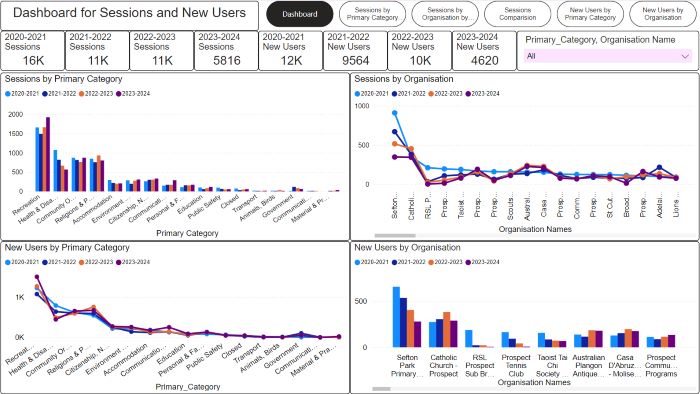
Mihir has selected Prospect Council (City of Prospect) for his Power BI council reports, which has approximately 140 community services operating for the financial year 2023-2024. His reports followed the a combination of previous visualisation work created by Stathis Avramis, Harsh Bhatt and Kane Hengchuan Zhao. His completed reports can be found >>here.
There are a number of steps involved in presenting the community service information data. A detailed project outline that Mihir followed can be found below.
Data collection:
- Obtained sessions, new users, and user data from GA4 for services operating within the Prospect Council for the financial year 2023-2024.
- Extracted data for all services listed under the Prospect Council on SAcommunity.
Data Cleaning:
- Manually cleaned the data from GA4 using the steps outlined by volunteer Harsh Bhatt.
- Cross-checked each organisation to make sure that it belongs to Prospect council.
- Updated the sessions, new users and user's column using the code made by volunteer Anubhav Dattagupta, Jason Chun Kwan Lam and Mihir.
Visualisation:
- After cleaning the data, Mihir created Power BI and Canva reports. Mihir also implemented geo-tagging into his Power BI report and four-year comparison report.
The Power BI and Canva reports revealed data anomalies and corrections that needed to be made on SAcommunity. Once the changes were made, the reports were re-created with the updated data. Then, the final reports were published onto the SAcommunity website and introduced by Mihir to the Prospect council stakeholders for feedback.
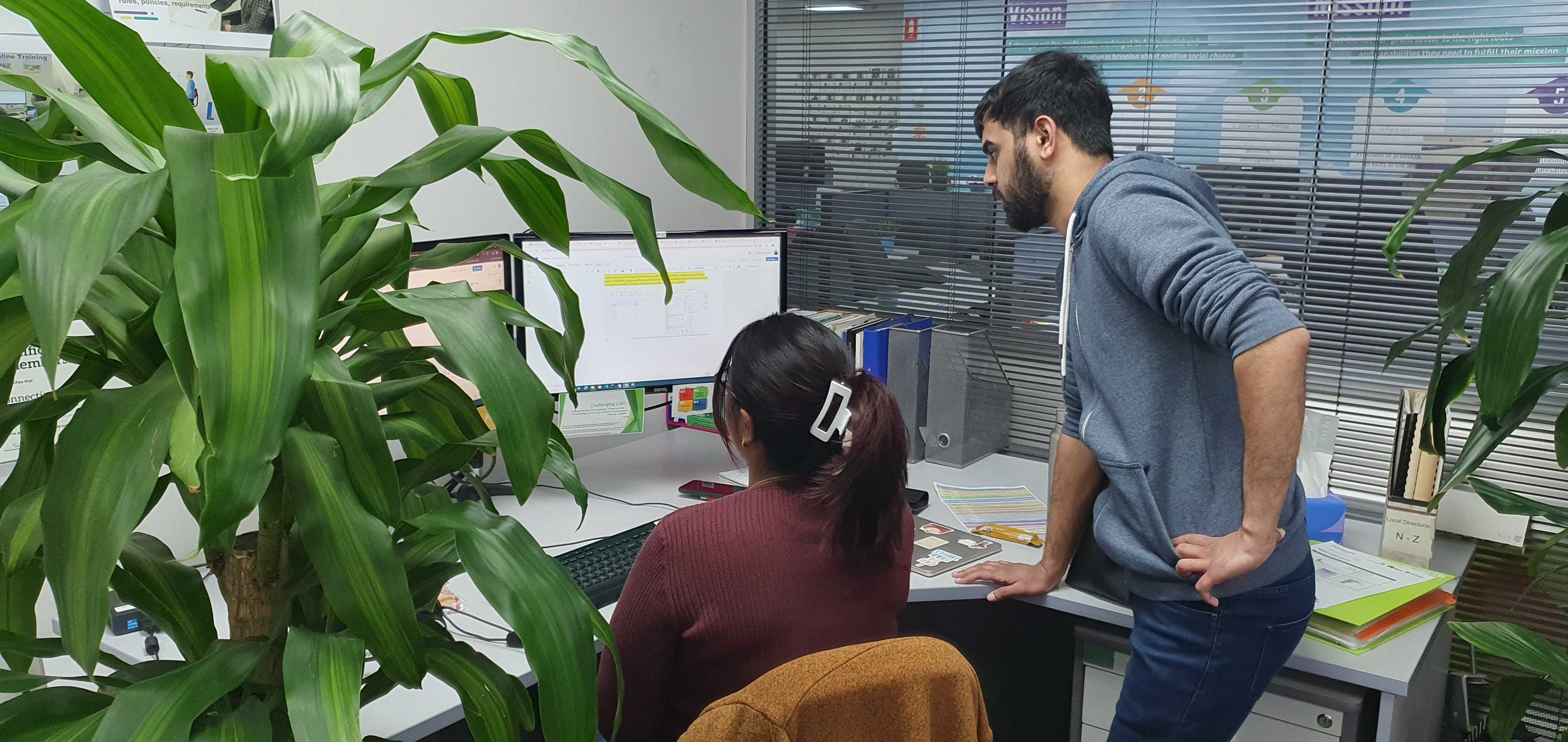 Image: Peer-to-Peer Training: Mihir Desai demonstrating Kurinji Arivazhagan the project workflow.
Image: Peer-to-Peer Training: Mihir Desai demonstrating Kurinji Arivazhagan the project workflow.
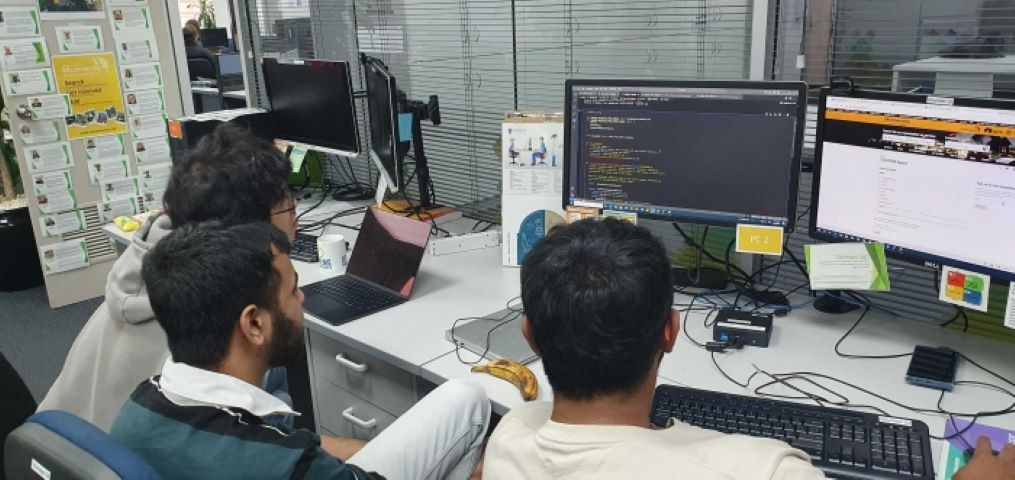 Working on Python: Mihir Desai, Anubhav Dattagupta, Jason Chun Kwan Lam
Working on Python: Mihir Desai, Anubhav Dattagupta, Jason Chun Kwan Lam
Some of the key tasks Mihir undertook towards this project are outlined below:
Mihir collaborated with fellow volunteers Anubhav Dattagupta and Jason Chun Kwan Lam to identify the issue faced by the data analytics team due to inaccurate data for the financial year 2023 to 2024 from Google Analytics 4. To address this issue, they collected all organisation data for the 2023-2024 financial year from Looker Studio and implemented a python code that eliminated the need of manually checking and updating the values for "sessions", "new users" and "users" for each organisation. The code also helped in significantly reducing the amount of manual cleaning needed by automating the process of removing duplicated rows by adding up values for "sessions", "new users" and "users" and then removing one of the duplicated entries. This project not only improved the quality of the data but also helped the data analytics team streamline the manual data cleaning process. The code can be found here (Only for internal people).
Mihir and his fellow volunteers Anubhav Dattagupta and Jason Chun Kwan Lam lead a discussion on the google analytics issues and presented some short term and long-term solutions to James Newport Senior Web Developer, and Stathis Avramis, Data Analytics Lead.
One of the issues addressed in our meeting was the misalignment between the dataset Identification number and the Council. This poses a significant challenge as discrepancies in service data may arise if the two don't align.One solution discussed in the meeting was implementing an input consistency validator, which would display a warning if the two fields did not align.
The second issue discussed in the meeting was the inclusion of /edit as valid sessions in Google Analytics 4. This should not be counted as valid sessions, as it involves volunteers or interns editing the organisation's information rather than representing the organic user searching for that organisation. A proposed solution to address this was to exclude /edit from Google Analytics 4.
The final issue addressed in the meeting was the frequent changes made for the councils and datasets field, which caused the filters in Google Analytics 4 to function improperly, resulting in discrepancies for the filtered council data. During our discussions, we concentrated on identifying the root cause of this problem. Through various case studies, we concluded that it was likely to be a systematic issue, as multiple updates occurred within a short timeframe without a clear sequence of actions.
To address this, we proposed several long-term and short-term solutions that could lead to significant improvements, with some being relatively easy to implement. The first solution suggested was the implementation of a ticket system that notifies the admin of any changes being made and requires them to approve it before these changes can be reflected on the website. The second solution involved filtering out organisations based on the council at the end of each financial year using a Python script. For the long-term solution, we proposed utilising the LGA API to automate the process of obtaining council data, thereby eliminating potential manual errors.
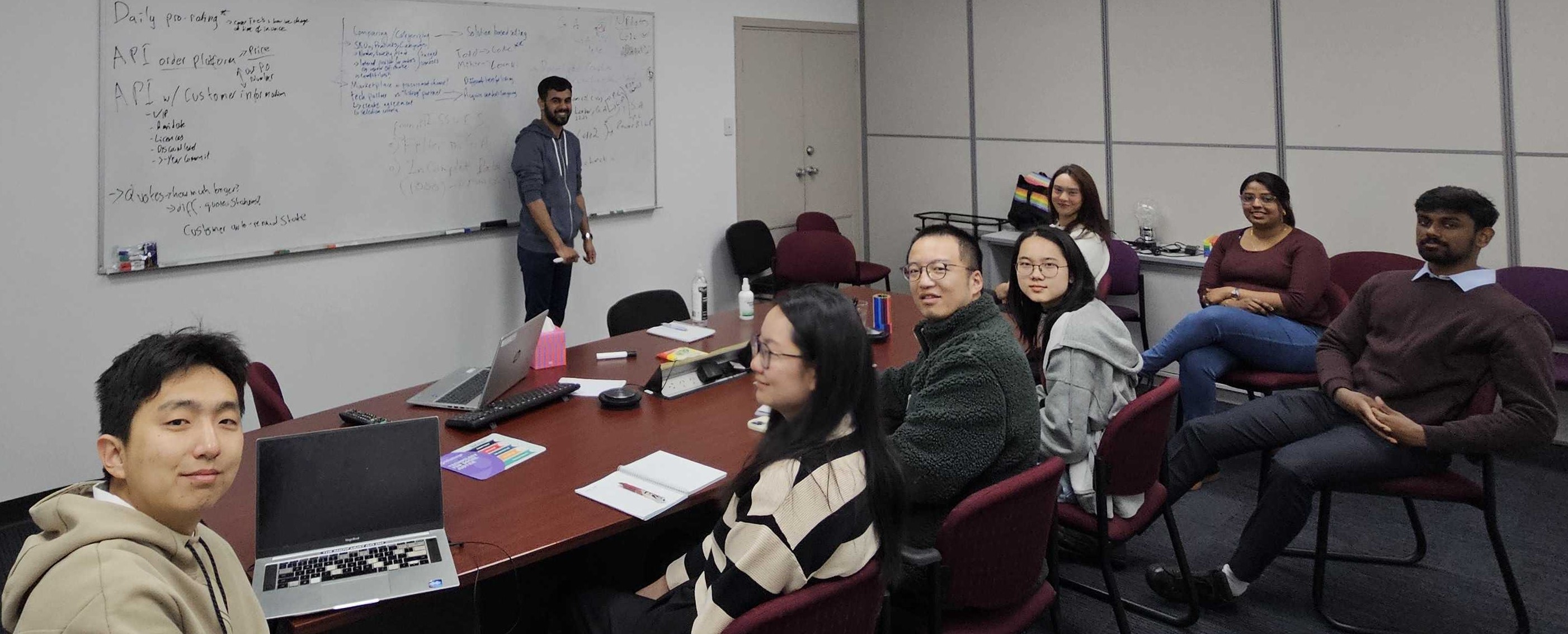 14 October 2024 Data Analytics Workflow Demonstration by Mihir to the data analytics team
14 October 2024 Data Analytics Workflow Demonstration by Mihir to the data analytics team
Mihir with volunteer Anubhav Dattagupta presented the temporary workflow that had been made until a permanent solution for the Google Analytics 4 issue was found.
Connecting Up Interns are provided with the opportunity to select a staff member from the wider Infoxchange organisation for an informational mentor meeting. The program provides them with the opportunity to ask the staff member about their job role, employment journey, and learn about their career and professional development to gain insights and guidance that can be applied towards their own success. Interns prepare 5 questions for their mentors and then are encouraged to record 5 aspects that they felt were helpful for them to share on their portfolio for both themselves and other volunteers, and Mihir shared his experience in meeting Kristen Moeller-Saxone Data Capability Lead, Infoxchange.
I selected Kristen Moeller-Saxone, Data Capability Lead at Infoxchange for this program because of her extensive experience in the data science field. This makes her the ideal mentor for me as I can get valuable insights from her that can help me in my journey as a data analyst.
One of the key focuses of my conversation with Kristen Moeller-Saxone was on how to stay employable in the age of artificial intelligence. She emphasised the increased importance of strong interpersonal skills in the workplace as automation takes over the more technical tasks. She also pointed out the need for effective communication in our field to ensure that we can convey complex ideas and findings to non-technical stakeholders in a manner such that everyone understands it. She also stressed the importance of continuous learning to ensure you stay relevant and thrive in this field.
We also discussed leadership skills and what it means to be a good leader. She explained that a good leader not only ensures that operations run smoothly but also actively seeks opportunities for innovation. Kristen Moeller-Saxone emphasised that everyone has their own unique leadership style, and it's important for me to identify and develop my own.
Overall, the meeting with Kristen Moeller-Saxone provided me with a wealth of valuable insights that I can apply to grow both professionally and personally.
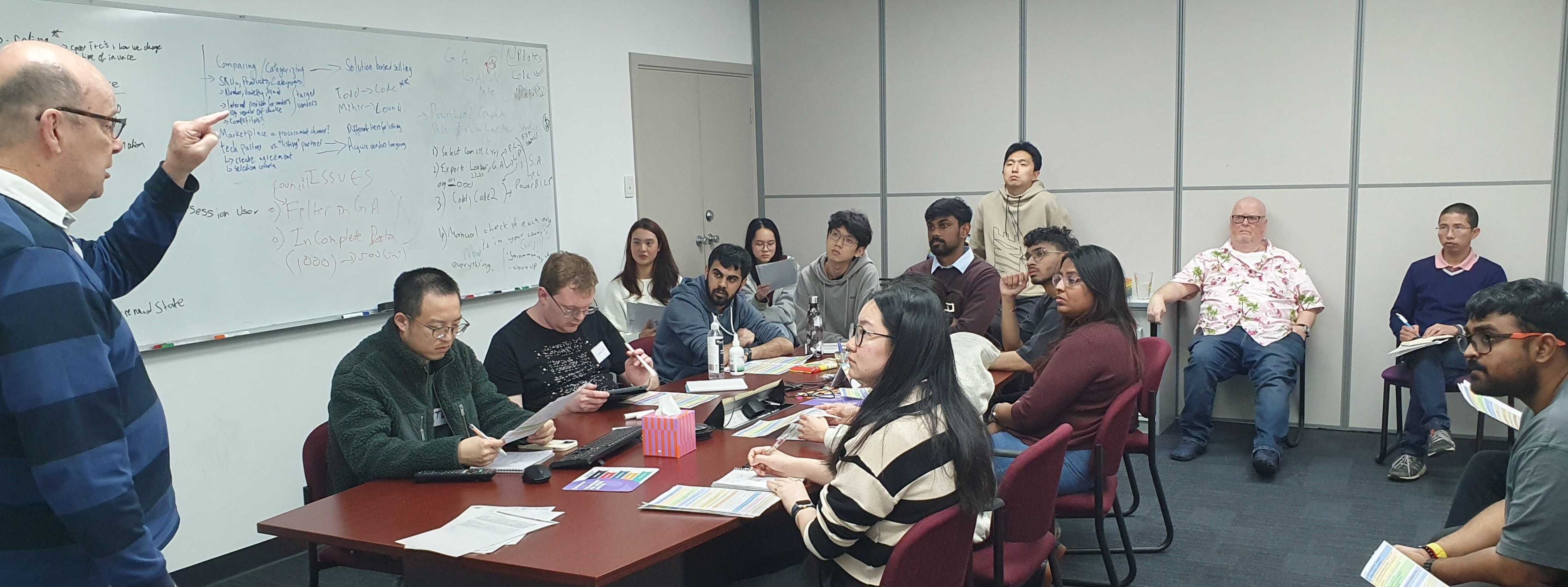 Telephone Training: Led by Volunteer David Webb
Telephone Training: Led by Volunteer David Webb
At Connecting Up, interns and volunteers are required to undertake telephone techniques training to ensure that they have strong phone etiquette. The training prepares the Data Analytics interns and volunteers to do calls in a consistent and professional manner using a script to update individual council dataset information and finally present their report to council stakeholders. Telephone techniques training happens several times throughout the internship to provide interns and volunteers enough time to practice and develop their skill.
Infoxchange RU OK Cake & Connect Day 10 September 2024
R U, OK? Day is an annual event that is held on the second Thursday of September, and it encourages people to connect with individuals that have emotional insecurity and promotes community cohesiveness. At Connecting Up, we took this as an opportunity to have casual and friendly chat with each other, whilst having some cake. Apart from this, we also got some tips from Pankaj Chhalotre, the head of the Connecting Up Program on how to boost our mental and physical health such as getting some sunlight after waking up or taking some cold showers. This session reminded me to reach out to people around me regularly and ensure that they are doing well.
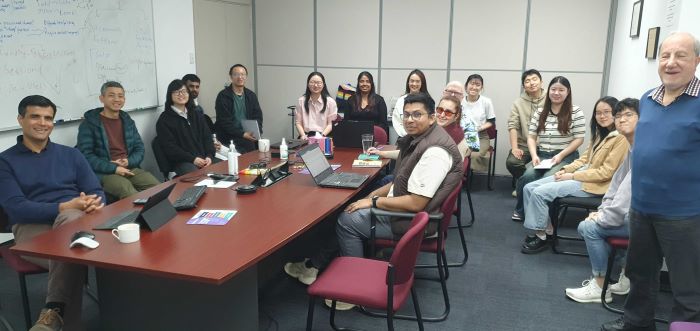 Connecting Up monthly All-staff meeting held 10 Sep 2024
Connecting Up monthly All-staff meeting held 10 Sep 2024
As part of our internship at SAcommunity, interns are encouraged to attend monthly staff meetings to gain an understanding of how an organisation functions. Pankaj Chhalotre, the head of the Connecting Up Program kick started the meeting by opening the floor to each department to share about their current project and discuss any challenges that they are facing. This created a collaborative environment, where everyone was open to share any ideas or thoughts that might help solve problems and contribute to the organisation's overall progress.
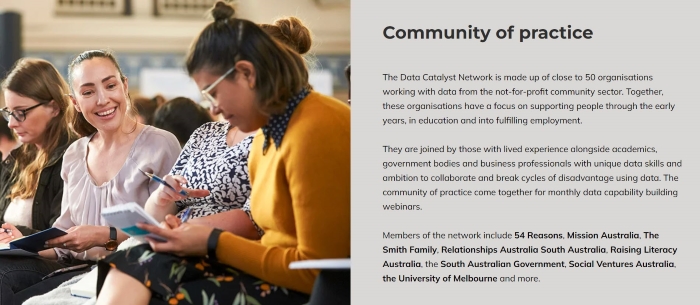
Data Catalyst Network (DCN): Brings together people from across sectors, to break cycles of disadvantage through the innovative use of data.
Participants of the Data Catalyst Network will advance their data maturity while sharing and improving data insights through unique cross-sector partnerships to disrupt disadvantage. As a collective, the network will harness data and knowledge from the not-for-profit community sector, academia, government and business to better use and manage data to improve the lives of people across Australia.
This DCN webinar was led by Kirsten Moeller-Saxone, the Data Capability Lead at Infoxchange, featuring guest speakers Anne Hampshire from The Smith Family and David Engelhardt from the Department of Education and Children's Services. This webinar highlighted the Smith Family’s aim to overcome educational inequality by utilising real-time data through their successful partnership with South Australian Department for Education. This allowed the members at The Smith Family to make more target recruitment for their program and better support students and families through more strategic calls.
Some of the key takeaways from this DCN webinar was the importance of having robust data management practices when working with sensitive data. This is vital to build trust within parties such as the parents of the kids involved by assuring them that their data is handled by the right people and protected against any sort of breaches.

Australian Digital Inclusion Alliance (ADIA)
The Australian Digital Inclusion Alliance (ADIA) is a shared initiative with over 500 business, government, academic and community organisations working together to accelerate action on digital inclusion. ADIA is supported by Infoxchange, Google, Telstra and TasNetworks. Volunteers and Interns have the opportunity to attend these stakeholder meetings.
September 2024 Meetup - Positive impacts of AI: The intersection of AI and Digital Inclusion
At the September 2024 ADIA meetup, the discussion revolved around how artificial intelligence (AI) is helping to break down social barriers by empowering individuals, particularly those with limited education or who don't speak English as their first language, through accessible tools. The meetup highlighted how AI can assist non-English speakers in translating health advice, promoting health equity. It also demonstrated how AI can support small business creation, help write posts and emails, and aid in job applications, ultimately uplifting those facing disadvantages due to education or language barriers.

Jo Davies, Chief Operating Officer at Infoxchange shared valuable insight on different aspects of innovation during this particular lunch and learn session. Jo Davies emphasised in her presentation that innovation isn't just about brainstorming creative ideas; it's more about practically implementing those ideas to ensure they result in the introduction of new services or products and improvements to existing offerings. She showcased intriguing examples of various types of innovation, such as the incremental innovation seen in razor designs and the radical innovation represented by Apple products like the iPhone and Macintosh.
Attendees also shared inspiring stories of innovation such as the development of the first online crisis accommodation register in the 1990s by Andrew Mahar, the founder of Infoxchange to assist those experiencing homelessness in finding a bed for the night. Another example that resonated with me was the transformation of SAcommuntiy from the traditional printed Yellow Pages into an online directory, which I currently use.
The two key takeaways for me from this session were the introduction of the 3 Horizon models and the 70/20/10 principle. Jo Davies demonstrated how organisations like Infoxchange organise their efforts into three phases: Now, Near Term, and Future, using the 3 Horizon model to balance current operations with future growth opportunities. Additionally, Jo Davies presented the 70/20/10 principle, which suggests that organisations allocate 70% of their time and resources to current operations, 20% to learning and development, and 10% to exploring new opportunities.
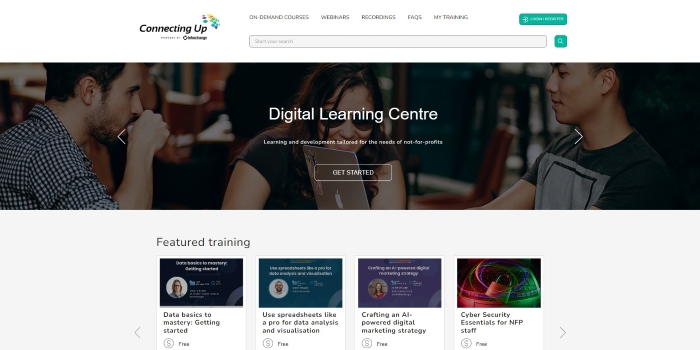
Volunteers and interns have access to the Connecting Up Digital Learning Platform providing live webinars and recorded webinars, workshops and webcons presented by subject-matter experts to understand more about a range of technology topics for the not-for-profit sector. They select, attend and comment on relevant training sessions they feel will enhance their internship experience.
Relevant training sessions were selected, attended, summarised and assessed by Mihir can be found below:
This webinar was presented by Vivek Katial as part of the Data Catalyst basic webinars series. Vivek Katial is the Co-Founder and Executive Director at Good Data Institute, which works with not-for-profit organisations to help them elevate their data capabilities. The webinar breaks down the data project lifecycle into four key stages: objective, data, analysis, and action. It also provided strategies on how to handle messy data and how to fix it such as standardise the data entry with consistent formats or regularly clean and check your data for errors.
Something that I really found interesting was the case study that was presented by GDI in the webinar. Vivek Katial explained how they used de-identified toy box data such as origin address and destination address and custom google maps function to calculate longitude and latitude and driving distance between the two addresses. This helped them analysis how far the toy boxes had travelled in total and visualise it. This helped deepen my understanding of how data can be used in a real world scenarios.
Overall, this webinar offered valuable insights can be applied into my internship project and in the future roles.
This webinar was jointly presented by Power Platform Cloud Solution Architect Alexander Georges collaborating with Partner Technology Strategists Abby Shen and Rohit Lakhanpal.
The goal of this webinar was to demonstrate the rapid growth of generative AI technology in comparison to other innovations like mobile phones, the internet, and Facebook. This was illustrated by noting that mobile phones took 16 years to reach a user base of around 100 million users, the internet took 7 years, and Facebook took 4.5 years, while ChatGPT achieved this milestone in just 3 months. ChatGPT experienced rapid growth as users quickly recognised its value. However, a common question that arose during the beginning days of generative AI was how can people direct it towards their data and make it perform the tasks that theneed? This is where conversational AI came in and it is forecasted that by 2026, conversational AI deployment within contact centers will see a reduction in agent labor saving almost $80 billion dollars.
An example of a conversational AI is copilot, which is defined by Microsoft as an experience using generative AI and large language models to assist humans with complex cognitive tasks. Microsoft Copilot enables users to complete tasks like coding, addressing security threats, and resolving customer issues much more quickly.
Overall, this webinar enhanced my understanding of generative AI and conversational AI and inspired me to explore the coding aspects of thes technology further, as the focus of the session was more on no-code and low-code solutions.
Through this internship, I also got the chance to meet with my mentor Kristen Moeller-Saxone, the Data Capability Lead at Infoxchange. In this meeting, I gained valuable insights on how to stay relevant in the age of Artificial Intelligence and the qualities of a good leader.
Moreover, I was also able to participate in stakeholder events such as the Connecting monthly meetings, Infoxchange All staff town hall meetings and Data Catalyst Network (DCN). These meetings provided me with invaluable insights on how different organizations operate and the factors that are involved in the decision-making process. Additionally, I had access to a wide range of Connecting Up webinars that not only deepened my existing knowledge but also expanded my knowledge on emerging technology such as generative AI.
Furthermore, I had aimed to develop my interpersonal skills such as communication and problem solving at this internship. Reflecting on this aim, I believe that I have been successful in achieving this due to the supportive environment created by Connecting Up giving me the freedom to explore different aspects of the existing workflow to identify issues and develop effective solutions. Overall, this internship experience has clarified that I am on a career path where I can truly excel.
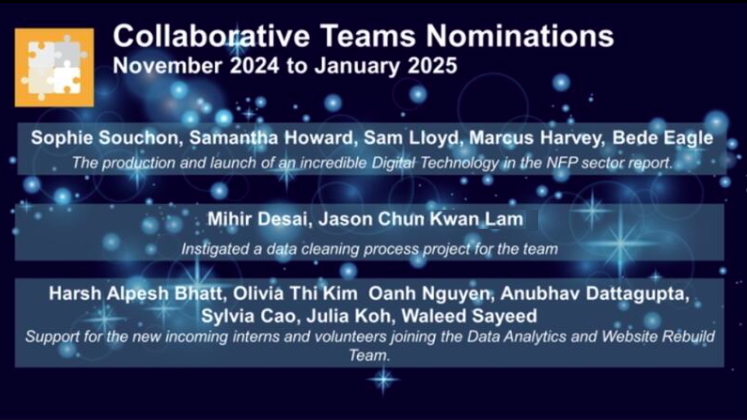
Sign up for the newsletter!
Subscribe to our monthly newsletter to receive news, information and events for the community sector in SA.




